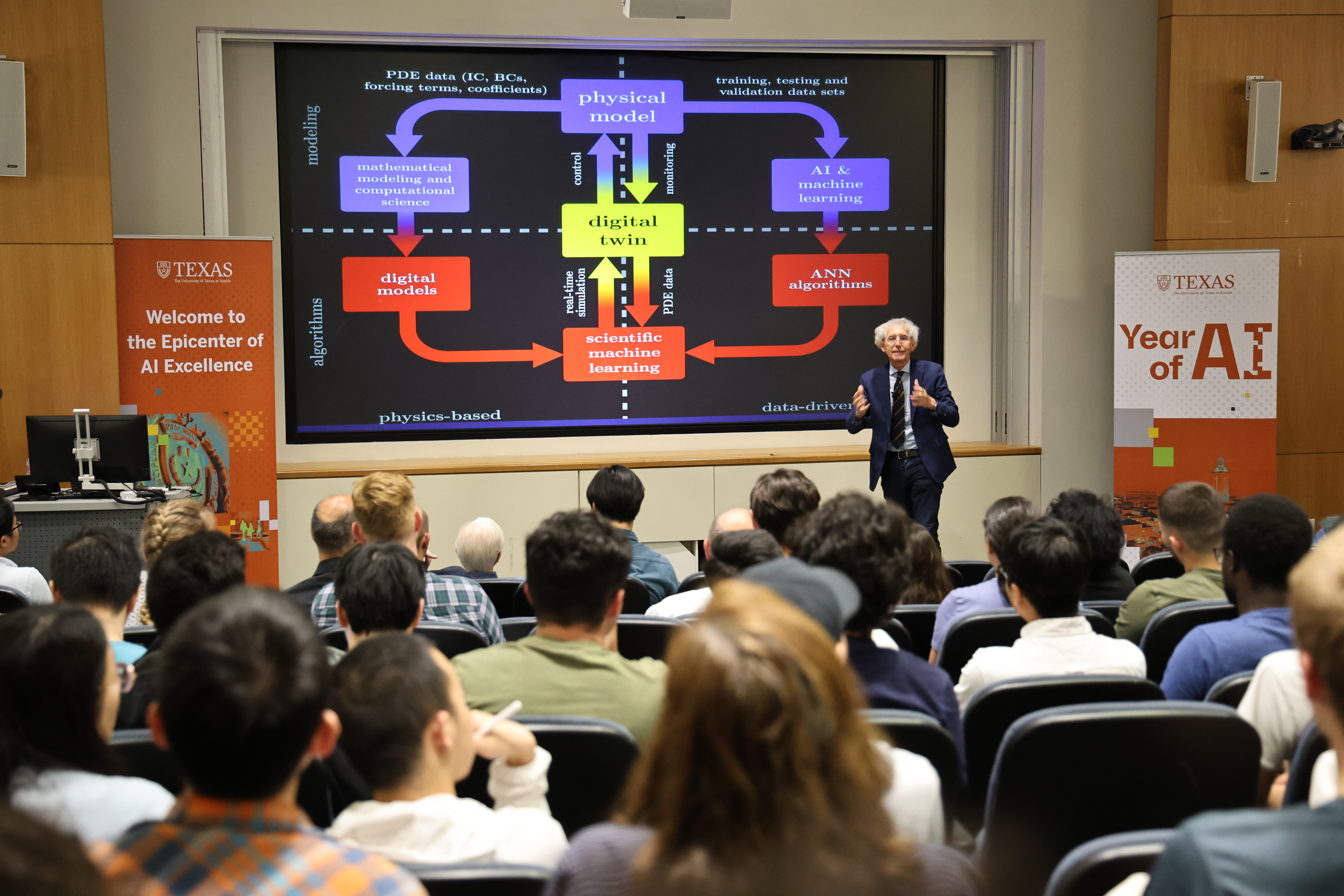On April 29, 2024, Professor Alfio Quarteroni addressed a packed auditorium for his Distinguished Lecture in Scientific Machine Learning on what he described as the "virtuous merging" of problem setting and problem solving. Quarteroni presented the Oden Institute for Computational Engineering and Sciences's second Distinguished Lecture as part of The University of Texas at Austin's 'Year of AI.'
Throughout his talk, "From Problem Setting to Problem Solving via Scientific Machine Learning," Quarteroni emphasized the symbiotic relationship between AI algorithms and physics-inspired numerical models. Quarteroni, a Professor Emeritus at both Politecnico di Milano in Italy and EPFL in Switzerland, illustrated these concepts through the development of a heart simulator.
The heart, as Quarteroni describes, is a "very complex organ... a fantastic organ" with intricate processes occurring every second. His research involves translating these physiological processes into mathematical equations to better understand and address heart pathologies. His journey into this field began unexpectedly more than two decades ago when a Ph.D. student expressed a keen interest in the subject. "This was completely new to me," Quarteroni admitted, but he embraced the challenge.
One of the major challenges in Quarteroni's work is the computational intensity required for simulating heart functions. "To simulate a single heartbeat... it takes hours on a big supercomputer," he said. His current focus includes leveraging artificial intelligence to reduce this computational cost while maintaining precision, a goal he hopes to achieve with the help of advancements in AI.
Quarteroni emphasized the importance of understanding the underlying principles and processes behind AI algorithms, rather than relying solely on “off-the-shelf” solutions. He stressed the need for a deeper mathematical understanding of AI, including parameters, convergence behavior, and dataset usage. Ultimately, Quarteroni highlighted the importance of a balanced approach that combines the strengths of AI with a solid foundation in mathematical and physical understanding.

